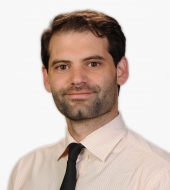
Sharon L. Morris is a 2013-2014 Jennings Randolph senior fellow. In her project at USIP, she builds a case for a new model of civilian assistance in fragile states, one that tightly integrates peacebuilding and development. She argues that the peacebuilding field can improve its credibility by adopting more rigorous approaches to impact measurement, by focusing on outcomes such as reduction in violent incidents, and by publishing negative findings. Her work draws on more than 15 years of experience designing and implementing conflict management and stabilization programs in places such as Afghanistan, Yemen, Iraq, Nigeria, and Somalia.
Morris is the director of Mercy Corps’ Youth & Conflict Management Office. The office provides support to more than 90 programs in many of the world’s most fragile states. Previously, she worked at the State Department as the senior advisor for Darfur to the president’s special envoy for Sudan. In 2006, she served as the director of the Provincial Reconstruction Team Program in USAID/Afghanistan and as the development advisor to the Commanding General of Combined Joint Task Force-76, the headquarters for U.S. military operations in Afghanistan. From 2002-2005, she was the senior advisor in the Office of Conflict Management and Mitigation at USAID where she headed the team responsible for providing support to conflict programs in USAID Missions.
Prior to joining USAID, she worked in the Program on Global Security and Sustainability at the John D. and Catherine MacArthur Foundation. Her assignments on conflict management have taken her to over 25 countries, including Sudan, Yemen, Iraq, Afghanistan, Pakistan, the Central Asian Republics, Haiti, Nigeria, Rwanda, Sri Lanka, and Nepal. She is on the board of the Alliance for Peacebuilding and a member of Women in International Security. She holds a Ph.D. and Master’s from the University of Chicago.


















